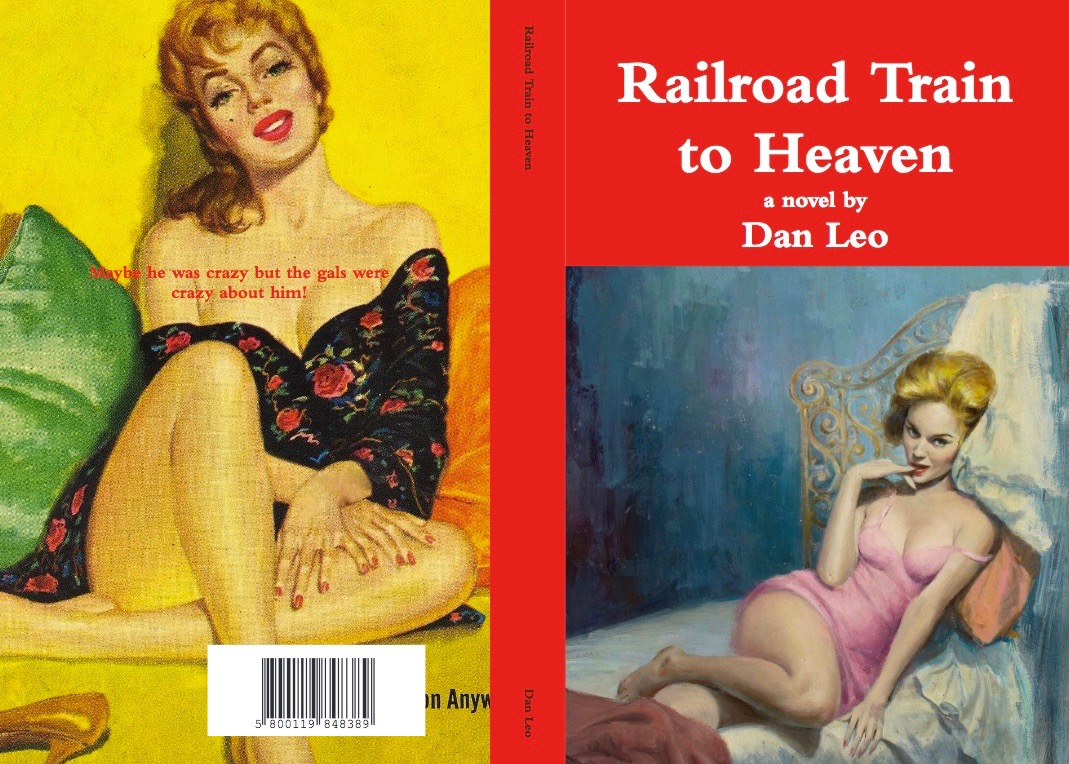Miss Alcott turned again to look in the direction of the minstrel band and the dancing people, Emily Dickinson, Harriet Beecher Stowe, Nathaniel Hawthorne, and others Milford didn't recognize, although unless he was very much mistaken, that was Frank Norris and the young Edith Wharton kicking their legs in unison.
Milford wished he could lose himself in the music, in the moment, but he had never been able to escape the prison of his personhood without the aid of alcohol, and he had not consumed nearly enough alcohol tonight to do so. He took another drink of his sarsaparilla. Should he say, "Damn the torpedoes," the torpedoes of discretion, and ask the bartender to add a large jolt of whiskey to his sarsaparilla? No, that way madness lay, no, maybe not madness, but quite possibly passing out in an alleyway in the snow and freezing to death, which might not be a bad thing, but nevertheless Milford was a coward, and even though he had never enjoyed life, he was afraid of dying.
He sighed, for the twelve-thousandth and twenty-second time since reluctantly assuming consciousness that morning which seemed like well over a year ago.
The singer of the band was now singing another song.
Oh I wisht I was a drop of rain
falling off the eave
I wisht I was the baby Jesus
on that very first Christmas eve…
Milford was sitting at his desk, looking through the window with its snow-crusted muntins out at the snowflakes falling on the snow-whitened old elm tree and onto MacDougal Street, also covered with snow, and on the snow-covered cars and people going by. On the desk blotter before him was the blank sheet of vellum foolscap, the same yellowed and foxed sheet that he had stared at every morning for the past fifty years, waiting for inspiration to come, for that first word to come.
Yes, he had once been young but now he was old. He was almost as old as his mother, who was still alive, as was their faithful maid Maria, who had as usual brought him the Drip-o-lator of hot strong coffee which sat on a stained ceramic trivet to his right.
For fifty long years he had sat at this desk, waiting.
He picked up his old Montblanc fountain pen, unscrewed the cap, and replaced the cap on the barrel of the pen.
Fifty years.
The Martians had landed, but after a few weeks they had returned to their home planet, bored.
The Russians had adopted capitalism, whereas the United States had become a social democracy, with free food, housing, and medical care for all.
A thriving colony had been established on the Moon, transporting precious minerals to the earth in enormous rocket ships the size of ocean liners.
War had been declared against the Martians, and fortunately the Federation of Earthling Nations had triumphed, with human casualties amounting to just shy of fifty million.
Atomic-powered flying cars were now all the rage, but many people still preferred cars that ran on wheels on the ground.
Disease had been eradicated, and people now only died from accidents, murder, and suicide.
It had been fifty years since Milford had taken a drink, but he still missed it sometimes.
Milford recapped his fountain pen, and lighted up a Husky Boy. It was true, cancer had been eradicated, but cigarettes had still lost none of their charm.
He smoked, and gazed through the window at the falling snow.
Suddenly he had an idea.
Well, not exactly an idea per se, but a faint glimmering of a possibility of an idea.
He picked up his pen again and uncapped it.
He took a deep breath, coughed, and, at long last, he put pen to paper…
"Marvin, my boy, there you are!"
A great hand clapped Milford on the shoulder.
He turned, yanked like a yo-yo from the future back to the present.
It was Walt Whitman.
"Oh, hello, Mister, uh, Whitman," he said.
"Walt, my lad, Walt! I thought we had long gotten past the use of Mister!"
"Hello, Walt," said Milford.
"I was wondering where you'd got to, what mischief you were getting up to, you young rapscallion you! Ah, but I see you are sitting with the lovely Miss Alcott. Hiya, Lou."
Miss Alcott had turned also and was looking at Mr. Whitman.
"Hi, Walt."
"And so you have met my young friend Morgan!"
"I thought his name was Milford," said Lou.
"Is that what you told her, Muggles?"
"Yes," said Milford. "You see, my name actually is Milford."
"Are you sure?" said Walt Whitman.
For a moment Milford said nothing, as the music played and the singer sang, and all around him people laughed and shouted.
"Yes," said Milford, at a point just seconds away from rudeness, "I'm pretty sure my name is Milford."
To be honest with himself, he wasn't completely sure, but he was pretty sure, unless this all was a dream, his whole life, and he was someone else.
The singer in the band was singing.
Oh I wisht I was a flake of snow,
falling from the sky
I wisht I was the baby Jesus
with a twinkle in his eye
"My boy," said Walt Whitman, squeezing Milford's narrow shoulder with his massive hand, "my beamish boy – now, my lad, now the fun begins!"
About time, too, thought Milford, but he didn't say that.
The singer was still singing.
Oh I wisht I was a shooting star
falling from the night
I wisht I was the baby Jesus
setting the whole world right
{Kindly go here to read the unexpurgated "adult comix" version in A Flophouse Is Not a Home, profusely illustrated by the illustrious Rhoda Penmarq…}


